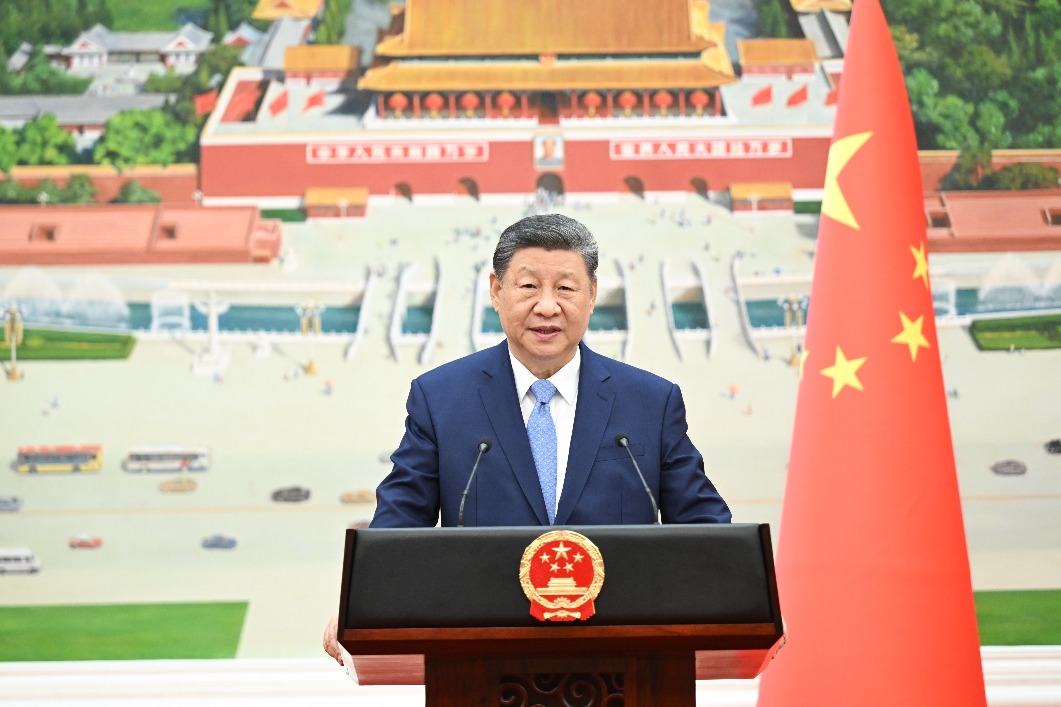The Kim-Trump summit: high risks, high stakes

Singapore summit: The historical mission and cultural challenge facing Trump

The diplomatic opening of Democratic People’s Republic of Korea, after years of closure and defiance, has marked observers with its suddenness and intensity, illustrated by the summits of Beijing, Panmunjom, Dalian and soon Singapore. Body language spoke loud and clear. The symbols and personal gestures between DPRK leader Kim Jong-un, Chinese President Xi Jinping and President of Republic of Korea Moon Jae-in, signs of sincerity and personal appreciation in the Asian culture, were numerous. Kim appears as a mature, empathic leader, mastering the agenda and protocol of state visits: a new image for the whole world that considers the Korean Peninsula as one of the major risks of possible war since the end of the Cold War.
The June 12 meeting is a new gear in this diplomatic acceleration. It is the next milestone for the inclusion of DPRK in the international dialogue, obviously expected by ROK, China and Japan before they can go forward themselves with the real process at their regional scale. For a United States president who appreciates straight forward messages and strong signs, it would nevertheless be advisable to show some restraint. The meeting in Singapore is certainly an important stage, but not yet an achievement which will have to associate all actors of a new dynamic in Northeast Asia. In any case, it should not be limited to a bargain between denuclearization versus relaxing economic sanctions.
On April 27, the two Korean leaders showed the world the symbolic and emotional signs of an ability to speak and work together. The cultural and ideological proximity also allowed a restoration of trust and shared visions between Kim and Xi that their geographical vicinity and political sense may easily entail.
The cultural and intellectual gap between Kim and Donald Trump is much larger. Beyond the difference of language, the two leaders will have to bridge a gap in mindset, emotional content, historical background and a virgin history of common talks. Despite his education in Europe, it is the first time for Kim to meet a Western leader. Trump’s experience in handling highly sensitive negotiations in Asia is limited. Both will have to learn to know each other.
The historical perspective, which conditions DPRK and the US perceive, remains the essential element of the background of this summit while a change in the course of history and a paradigm shift are at stake. Northeast Asia has not experienced the process of reconciliation that occurred in Europe at the end of World War II (we can compare the handshake of Kim and Moon over a tiny step of concrete in Panmunjom to that where then French President François Mitterrand and German Chancellor Helmut Kohl joined hands in Verdun in 1984). The geopolitics of Asian countries was built in their own dynamics to reach the current balance that has not settled the grievances of the past. To date, it can be said that there is still not any full and truly independent regional geopolitics and diplomacy that would allow Northeast Asian countries to discuss directly with each other and make progress in their common history. To this regard, the paradigm shift that is taking place is certainly an opportunity not to miss for China, Japan, the Koreas and other countries of the region to enter a new stage in their relations.
One of the key challenges of the discussion between the US and DPRK is to define in the same way what is the “denuclearization of Korea”, a concept that will obviously have to be endorsed in the same terms by China, Japan and South Korea. Let’s recall that regardless of the nation, the possession of nuclear weapons falls within the framework of a doctrine, made to fit a paradigm. The denuclearization of the Korean Peninsula would mark a change of doctrine by the Pyongyang regime that could only result from a change of the geopolitical paradigm and thus the role of the US in Korea.
It is this new paradigm, which goes beyond the US and DPRK, that Trump and Kim have the responsibility to define and integrate in their discussions. The best way to engage the denuclearization of the Korean Peninsula, in a sense that all concerned countries can adhere to, is undoubtedly the rapid signing of a comprehensive peace treaty, ratified by each of these countries. As any peace treaty in international law, it would include the recognition of the institutions of all countries and the conditions of their economic and political relations.
This diplomatic opening of DPRK has obviously its domestic political counterpart. We can see Kim and DPRK representatives leading the talks and preparing the meetings. However, we do not see yet how this dramatic move will be translated into the internal institutional, economic, and social system of DPRK.
If the US and China remain tutelary guarantors of security in Korea, it will also be necessary for the US to admit that Korean reconciliation belongs first and foremost to Koreans. Let us not forget that the two Koreas are two states but one nation, one people, one culture. Although the ideology and violent history of the 20th century led to their separation, they share the same language, the same cultural fundamentals and the same deep human springs. The inter-Korean agreement is the basis of the policy of cooperation, development and openness that will accompany the emergence of DPRK as a stable and peaceful state.
Trump will probably be tempted to make some announcement at the end of the summit, probably triggered by the excitement of Western media, and to associate the success of the summit to his hardline policy (no doubt it will be a success since it is well prepared). It would contrast with the restraint of China and Japan, though active and concerned parties, which abstain from statements that could disturb the preparation of the June 12 event.
Be that as it may, the success of this political and diplomatic phase will be total only when South Korea, China and Japan officially endorse its outcome and engage in direct geopolitical cooperation.
Last but not least – the author of these lines being French – it would be time for France, the only permanent member of the Security Council of the United Nations and one of the two members of the European Union (with Estonia) not to maintain diplomatic relations with DPRK, to mark its support to the process in course by establishing them without delay.
Jean-Philippe Raynaud works for a French multinational company in the energy sector. He has been a general manager on the Korean Peninsula and China for several years. He contributes this article exclusively to China Watch.
All rights reserved. Copying or sharing of any content for other than personal use is prohibited without prior written permission.































